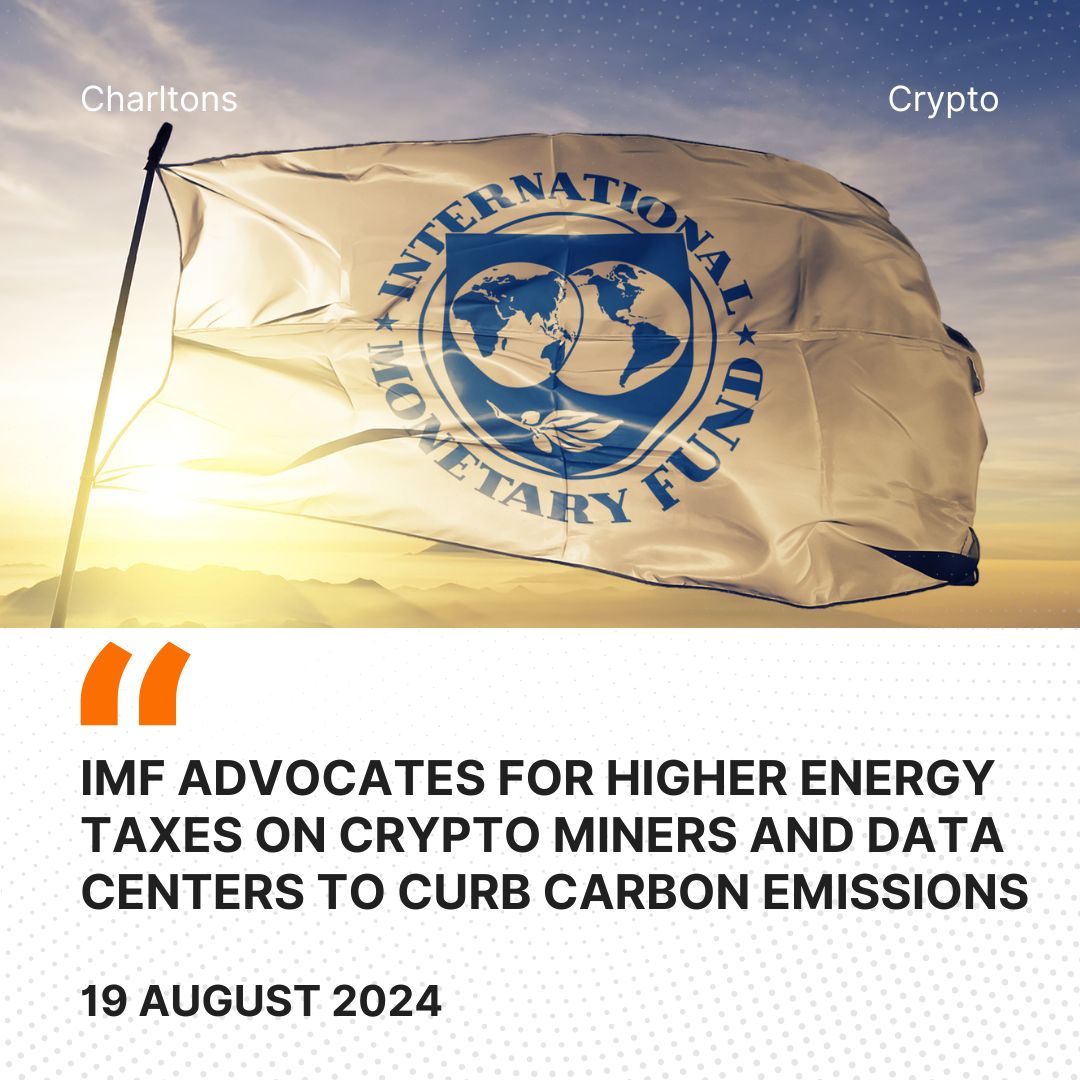
On 15 August, 2024, the International Monetary Fund (IMF) published a blog proposing significant increases in energy taxes aimed at crypto miners and artificial intelligence data centers, suggesting that such measures could play a crucial role in reducing global carbon emissions. According to a recent paper by IMF economists Shafik Hebous and Nate Vernon-Lin, raising electricity costs for these industries would not only encourage greater efficiency but also generate substantial government revenue.
The IMF’s paper highlights that increasing electricity prices for crypto mining by 85% could potentially yield an additional $5.2 billion in annual global revenue while simultaneously reducing carbon emissions by 100 million tons—equivalent to the annual emissions of Belgium. The energy-intensive nature of both crypto mining and AI data processing is at the heart of this proposal, with a single Bitcoin transaction consuming as much electricity as an average person in Ghana or Pakistan uses over three years. The power demands of AI are equally staggering, with each ChatGPT query requiring ten times the energy of a standard Google search.
Hebous and Vernon-Lin further underscore that crypto mining and data centers accounted for 2% of the world’s electricity consumption in 2022, a figure expected to rise to 3.5% by 2027—on par with Japan’s current electricity use. This increase could push carbon emissions from these sectors to 450 million tons annually, representing 1.2% of global emissions.
The IMF’s recommended strategy includes imposing targeted energy taxes that would be higher for crypto miners than for data centers, given that data centers are often located in regions with greener electricity sources. Such a tax could raise up to $18 billion annually from data centers alone. The proposal also suggests incentivizing the use of energy-efficient equipment and the adoption of less energy-intensive crypto mining methods, supported by credits for zero-emission initiatives and renewable energy certificates.
Currently, however, many crypto miners and data centers benefit from generous tax exemptions and incentives, despite their significant environmental impact and minimal contribution to employment. The IMF paper calls into question the net benefits of these special tax regimes, given the strain they place on electrical grids and the environmental harm they cause.
Several countries are beginning to adopt a more sustainable approach to managing the carbon footprint of AI and cryptocurrency industries. Nations like Sweden and Norway have introduced measures that promote renewable energy use for cryptocurrency mining. Additionally, the European Union has been exploring regulations that would impose stricter environmental standards on data centers and crypto operations.
Singapore has taken a forward-thinking and proactive stance on addressing the environmental impact of AI and cryptocurrency. The country is at the forefront of integrating sustainability into its AI and digital infrastructure strategies. As part of its National AI Strategy 2.0, Singapore emphasizes the importance of pairing AI advancements with sustainability commitments. This includes launching a $30 million fund dedicated to optimizing software design for energy efficiency and creating green-software trials to test carbon-reduction techniques in the industry.
Moreover, Singapore has developed the world’s first standard to optimize the energy efficiency of data centers in tropical climates, demonstrating its leadership in sustainable technology. These initiatives are part of Singapore’s broader commitment to achieving net-zero emissions by 2050 and reflect the city-state’s dedication to balancing technological innovation with environmental responsibility
The IMF also emphasizes the need for cross-border coordination in implementing energy taxes. Without such cooperation, stricter regulations in one jurisdiction could merely push these energy-intensive industries to relocate to regions with more lenient standards, undermining global efforts to reduce emissions.





